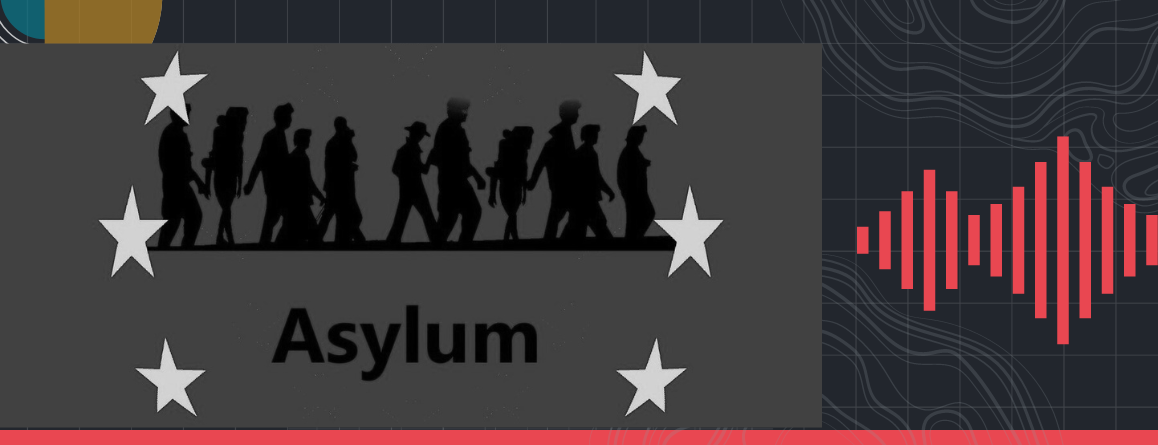Alarming developments are happening in Kazakhstan involving the denial of asylum cases for Karakalpak activists by the migration department, continuing unfair court decisions that were taken without considering the real threats facing activists in Uzbekistan. This leaves the activists in a precarious situation, with minimal hope for their immediate future.
Djaksymbetov Zhangeldi, Yuldasheva Tleubike, Mirmanbetova Ziuar, Khudaibergenova Raisa, Toremuratov Koshkarbai are Uzbek citizens and ethnic Karakalpaks. All five were charged for the Nukus protests that occurred in July 2022, even though they were in the territory of Kazakhstan at that time. The authorities of the Republic of Uzbekistan have accused the citizens mentioned above of crimes of encroachment on the constitutional order and public calls for mass riots. In the extradition request, the investigative authorities of the Republic of Karakalpakstan announced the following charges under the Criminal Code of the Republic of Uzbekistan:
- Khudaibergenova Raisa was charged under Part 4 of Article 159 (encroachments on the constitutional order of the Republic of Uzbekistan), paragraphs “a, b” of Part 2 of Article 244 (mass riots), and paragraph “g” of Part 3 of Article 244¹ (production, storage, distribution or demonstration of materials containing a threat to public safety and public order).
- Mirmanbetova Ziaur was charged under paragraph “d” of Part 3 of Article 156 (incitement of national, racial, ethnic or religious enmity), part 4 of Article 159 (encroachments on the constitutional order of the Republic of Uzbekistan), paragraphs “a, b” of part 2 of Article 244 (mass riots) and paragraphs “a,g” Part 3 of Article 244¹ (production, storage, distribution or demonstration of materials containing a threat to public safety and public order).
- Toremuratov Koshkarbai was charged under part 1 of Article 159 (encroachments on the constitutional order of the Republic of Uzbekistan), paragraph “g” of Part 3 of Article 244¹ (production, storage, distribution, or demonstration of materials containing a threat to public safety and public order).
- Yuldasheva Tleubika charged under paragraph “a” of Part 3 of Article 28 (Types of accomplices to the crime), 104 (Intentional heavy bodily harm) Part 3 of Article 158 (Encroachments on the President of the Republic of Uzbekistan), part 4 of Article 159 (encroachments on the constitutional system of the Republic of Uzbekistan), part 3 of Article 244 (mass riots) and paragraphs “a, g” of Part 3 of Article 244¹ (production, storage, distribution or demonstration of materials containing a threat to public safety and public order). The extradition request states that Yuldasheva was in the territory of Karakalpakstan from July 1 to July 5, 2022. The investigative authorities of the Republic of Kazakhstan were provided with data from Kazakhstan’s border service, which established that Tleubike Yuldasheva did not leave the country at that time.
- Djaksymbetov Jangeldi was charged under paragraph “d” of Part 3 of Article 156 (incitement of national, racial, ethnic or religious enmity), item “a,b” of part 2 of Article 244 (mass riots), and item “a, d” of Part 3 of Article 244¹ (manufacture, storage, distribution or demonstration materials containing a threat to public safety and public order).
Uzbekistan’s authorities are accusing individuals for merely advocating for the independence of Karakalpakstan, holding them responsible for mass riots that resulted in violence against protesters by the government forces. It is crucial to emphasize that advocating for sovereignty is not a crime, as per the constitutions of both Uzbekistan and Karakalpakstan. According to both constitutions, Karakalpakstan has the right to peacefully secede from Uzbekistan and establish itself as an independent nation.
Furthermore, the integrity of the investigations and trials against these individuals raise doubts. The evidence presented during the legal processes has not been impartially considered, and independent expertise has not been involved. All five individuals face charges related to the distribution of “separatist” materials through the Internet. However, the question arises: can the constitutional right to independence be equated with separatism?
Given Uzbekistan’s stance and persecution of those supporting Karakalpakstan’s independence, the position taken by Kazakhstan’s authorities appears inadequate. Recent instances highlight this, such as the open letter from Dauletmurat Tajimuratov, an activist sentenced to 16 years and named as a leader of protests in July 2022. Tajimuratov revealed facing torture in detention throughout the legal proceedings, with the Uzbek government allegedly attempting to inflict fatal harm through degrading and cruel treatment in prison.
Another alarming case is that of Zhumasapar Dadebaev, who was abducted from Turkey, where he sought asylum. Dadebaev is now serving a 12-year sentence and reportedly endures regular torture in prison. These examples underscore the challenges faced by those advocating for Karakalpakstan’s independence and point to serious human rights concerns within Uzbekistan.
Djaksymbetov Zhangeldi, Yuldasheva Tleubike, Mirmanbetova Ziuar, Khudaibergenova Raisa, Toremuratov Koshkarbai have applied for asylum in Kazakhstan. Prior to this, all five were arrested and spent 12 months in the Kazakhstan detention center due to the extradition request from Uzbekistan. Koshkarbai Toremuratov was able to leave Kazakhstan and applied for asylum in Austria. While the lives of others are in danger facing risk of extradition to Uzbekistan. We are currently awaiting the Supreme Court of Kazakhstan’s final decision regarding their asylum case.
Given Uzbekistan’s horrendous track record of human rights violations and well-documented cases of political persecution against opposition figures, Freedom for Eurasia urges Kazakhstan to take a stand in safeguarding the lives and freedoms of Karakalpak activists seeking protection. By granting protection to these Karakalpak activists, Kazakhstan can demonstrate its commitment to promoting human rights and justice in the region, fostering an environment that upholds the principles of freedom, dignity, and safety for all individuals seeking refuge.
Freedom for Eurasia calls on Kazakhstan to uphold its commitment to human rights, particularly in light of the 1951 Refugee Convention and the 1984 Convention against Torture and Other Cruel, Inhuman or Degrading Treatment or Punishment.
